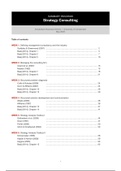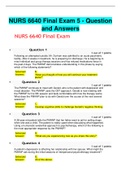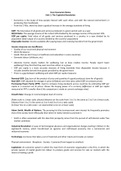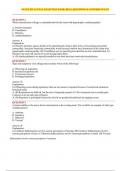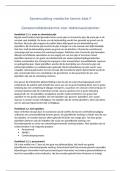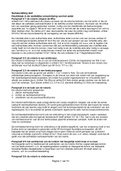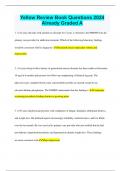Samenvatting
Summary ALL readings Strategy Consulting 2020, MSc Business Administration UvA
- Instelling
- Universiteit Van Amsterdam (UvA)
In this document you find an English summary of all mandatory reading of the Business lab course Strategy Consulting, as is teached in the second semester of study year 2019/2020. Both the articles and book chapters of Baaij (2015) are covered.
[Meer zien]
